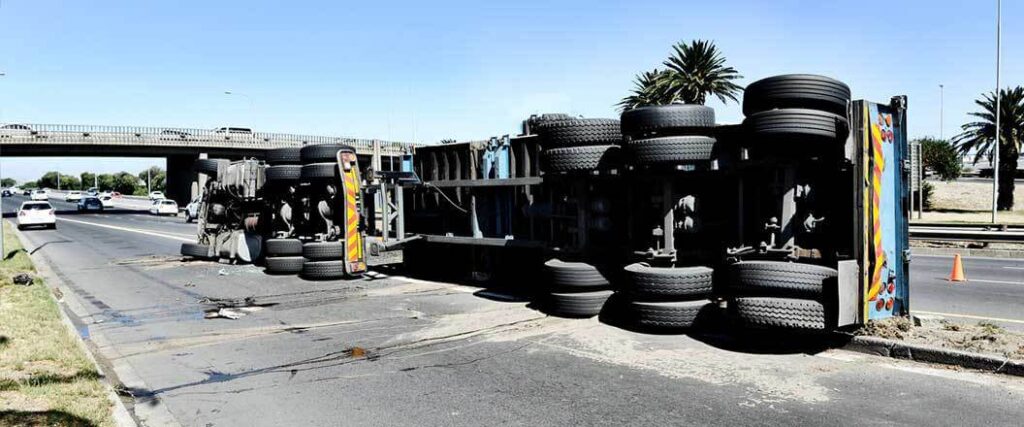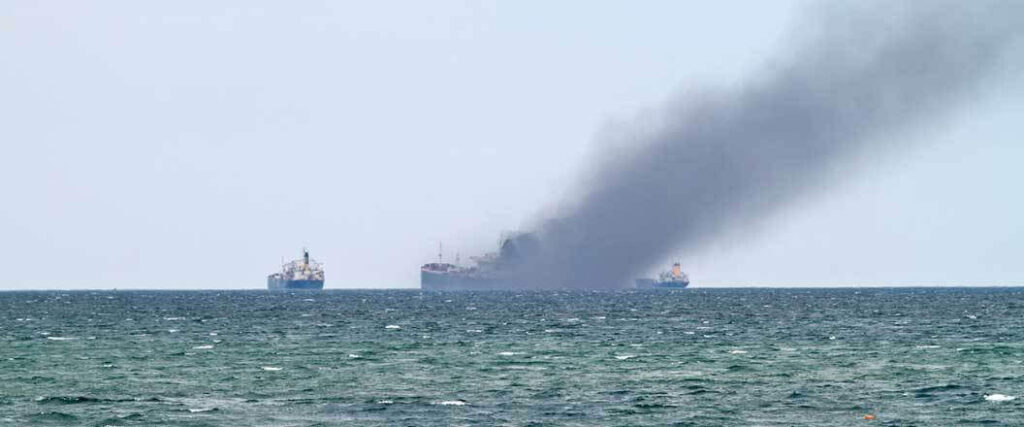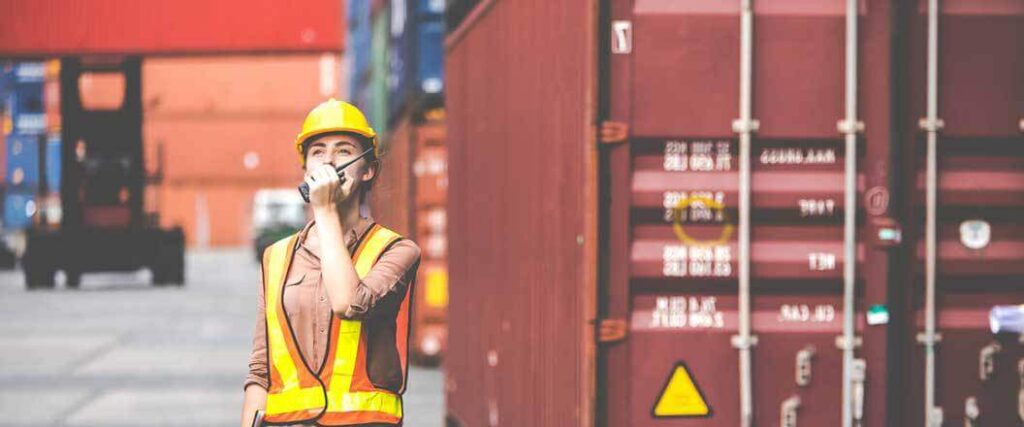Types of cargo insurance are as diverse as the cargo they protect. Each carries its own set of coverages, exclusions, and costs. It’s a complex web that can trip up even the most seasoned businessperson. One small oversight can spell disaster, while unnecessary coverage may weigh heavily on the bottom line. Navigating this landscape is no simple task, but with a little guidance, you can be confident in your choice of coverage.
The International Trade Administration (ITA) asserts the importance of cargo insurance for businesses involved in shipping. Different types, such as All Risk, Named Perils, and Total Loss Only policies, safeguard goods in transit. It's crucial to choose coverage based on the value of the goods and the potential risks involved.
Ready for a deep dive on the topic of cargo insurance? Join us as we take the plunge.

Delving into the world of cargo insurance, you'll come across different tiers of coverage, each offering various levels of protection.
The four most common cargo insurance policies are:
Let's explore each in more detail.
All Risk insurance offers the most comprehensive coverage. It protects against all physical loss or damage from external causes, making it the ideal choice for high-value, delicate, or perishable items.
Some examples of situations covered by All Risk insurance include:
Given its comprehensive nature, All Risk cargo insurance is essential for scenarios such as:
Considering the wide range of incidents to which it applies, All Risk insurance offers great peace of mind for shippers.
Total Loss Only policies are a more cost-effective form of cargo insurance. They protect you from situations where you might lose the entire shipment, but not from minor damages.
This policy type might be the right choice in these situations:
Essentially, the less risk involved en route, the more likely it is that a Total Loss Only policy will be your best choice.

Named Perils and Specific Perils coverages are distinct, but similar, forms of cargo insurance. Unlike an All Risk policy, this type of cargo insurance covers risks explicitly listed in the policy, not comprehensive protection. It's a more targeted form of coverage and can be suitable in specific circumstances.
Named Perils Coverage
Named Perils coverage is ideal when:
Specific Perils Coverage
On the other hand, Specific Perils coverage might be the right choice if:
Remember, as with any insurance policy, the goal is to balance coverage and cost.
A contingent insurance policy offers coverage when the primary policy does not respond or is not in place. They act as a safety net in situations where coverage gaps might occur.
Here are situations where contingent coverage could be an ideal choice:
A contingent insurance policy isn't for every shipment, but for those with higher risk or complexity, it provides valuable peace of mind.

There are many interchangeable terms for international cargo insurance. Among these terms are overseas cargo insurance and overseas cargo shipping insurance. However, one term that is sometimes used interchangeably is actually a different insurance type, and that’s international freight insurance.
While cargo insurance protects the goods themselves during transit, freight insurance typically covers the cost of transporting goods.
To understand the distinct roles that international freight insurance and international cargo insurance play, let's consider two hypothetical scenarios:
FreightMovers International is a logistics company that transports goods from one place to another. If a shipment is delayed due to a storm, the company can claim insurance to cover the additional costs, such as fuel, overtime, and penalties.
TechCo is a company that owns a shipment of electronics. During a storm, a portion of the shipment gets damaged due to water ingress in the cargo hold. TechCo can file a claim with their international cargo insurance provider to recover the value of the damaged electronics.
International cargo insurance companies, such as ourselves, offer insurance for the cargo itself. Freight insurance falls under the umbrella of freight charges, which are a separate aspect of logistics.
Cargo insurance will protect your shipment financially. Freight insurance will not.
Cargo insurance applies differently depending on the mode of transportation, each with unique characteristics and risks.
The three standard methods of cargo transportation are:
Your choice (or choices) of transportation modes will have a big impact on what kind of insurance you should choose. This is largely based on the unique perils each mode faces while cargo is in transit. We can understand these perils better by reviewing the most popular methods of intermodal transportation.
While air transportation offers speed and convenience no other mode can offer, it also carries unique perils. Understanding these potential pitfalls reinforces the importance of having a robust air cargo insurance policy.
The following perils can present themselves during air travel:
Whether they originate from internal or external factors, it’s vital to understand these risks and ensure your insurance policy covers them.
The primary purpose of marine cargo insurance is to mitigate financial losses resulting from physical damage or loss of goods during sea transit. Problems come up due to a variety of reasons, referred to as 'perils' in insurance terms.
Here are some of the common perils associated with marine cargo transport:
Given these risks, the importance of marine cargo insurance for importers and exporters cannot be overstated. It provides peace of mind to businesses and assures them that their financial interests are safeguarded, regardless of the perils that might occur during sea transit.
In the trucking industry, a lot can happen between loading and delivering your cargo. Risks such as road accidents, theft, and damages from loading and unloading are fairly common.
Some of the risks from which land cargo insurance offers protection include:
Choosing the right motor truck cargo insurance provider for your truckload can ensure comprehensive coverage against these common perils.

Cargo insurance rates will differ depending on what mode(s) of transit you choose to use. Your commodity type also plays a deciding factor in the total cost of your insurance premium. The following table lays out some approximations of what you can expect to pay via land, sea, and air to insure frequently-traded commodities.
For the purposes of this table, the assumed value of each cargo shipment is one million dollars.
| Commodity Type | Land (Domestic) | Ocean (International) | Air (International) |
| Computers and Electronics | $12,500 | $19,200 | $16,700 |
| Household Goods | $17,000 | $25,900 | $24,900 |
| General Merchandise | $5,500 | $8,700 | $8,100 |
| Jewelry | $30,000 | $30,000 | $30,000 |
Source: cargoinsurancecenter.com
Bear in mind that these prices are based on industry averages. Rates can and will fluctuate based on factors such as shipping routes and market conditions.
Also note that for some commodities, such as jewelry, insurance premiums are equal regardless of the shipping method. This is often the cased with high value items.
We’ve gone over several types of insurance, and it might be worthwhile to review some basic terms of the industry.
Let's break down some of these key terms.
Once you understand these terms, you’ll be well-equipped to choose the best type of cargo insurance for your needs. Of course, if you still need a hand making that decision, we’re here to help.
It’s clear to see that getting the right cargo insurance is a big part of protecting your business’s bottom line.
Here at Freight Insurance Coverage, we can cover your cargo whether’s it’s traveling via:
Don’t let your precious payload fall prey to the potential perils of long-distance transportation. Get a quote today or contact our cargo insurance experts at (866) 975-0749 and start protecting your shipments from the perils of transit.
Freight Insurance Coverage
315 NE 14th Street #4122
Ocala, FL 34470